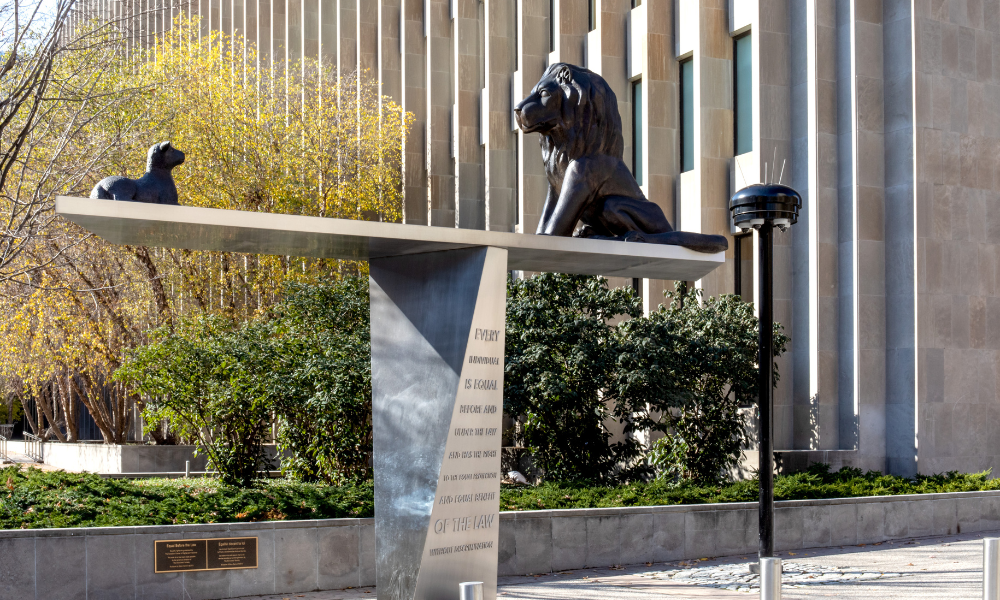
Case arises from motor vehicle collision leading to former helicopter pilot's orthopedic injuries

The Ontario Superior Court of Justice ordered a defendant in a personal injury case to pay the plaintiff $282,251.79 and the third parties $155,739.31 in costs, including legal fees, disbursements, and harmonized sales tax.
The case of Mitton v. Ministry of Transportation, 2025 ONSC 2645, involved a motor vehicle collision. In February 2015, the defendant lost control of her vehicle on a highway, crossed the centre lane, and hit the vehicle driven by the plaintiff.
The plaintiff suffered orthopedic injuries, including a crush fracture to his heel bone. He brought an action against the defendant.
The plaintiff alleged that he joined the Canadian military at 20 years old, became a helicopter pilot in 1995, and served overseas in five deployments. He said he lost his qualification to fly helicopters while recovering from his injuries and was unable to return.
The defendant accepted that there was no issue of contributory negligence in this case, which revolved around damages. She filed a third-party claim against those responsible for maintaining winter operations for the highway: Ontario’s transportation ministry and its winter maintenance operator.
The proceedings included mediation in December 2020 and a pretrial in December 2023. The defendant made an offer requiring the third parties to contribute 50 percent of any settlement.
In May 2024, the plaintiff and defendant settled the action for $210,000 plus prejudgment interest. They asked the court to fix the plaintiff’s cost award. The third parties argued that the settlement amount was unreasonable.
The minutes of the settlement stated that the plaintiff and his witnesses were ready to attend trial for the defendant’s claim against the third parties to provide evidence supporting that the settlement amount was reasonable under s. 2 of Ontario’s Negligence Act, 1990.
This provision, which covered a situation involving recovery between tortfeasors, required the tortfeasor settling the damages to prove to the court that the settlement amount was reasonable.
While addressing pretrial issues, the judge inquired whether the third parties would have to pay the percentage of the damages assessed at trial if the judge decided on an amount higher than the settlement sum and found the transportation ministry liable for some portion.
Within hours of the judicial assistant sending this inquiry, the third parties accepted that the settlement amount of $210,000 was reasonable.
The Ontario Superior Court of Justice’s costs decision noted that the plaintiff spoke clearly and without exaggeration as a witness and made a reasonable formal offer to resolve the case in April 2024.
Next, the court held that the defendant’s requirement in the offer for the third parties to contribute 50 percent of any settlement was entirely unreasonable.
The court found that the defendant’s insurer unreasonably alleged that it could not settle without the third parties’ contribution, particularly in this case involving objective orthopedic injuries and lacking potential contributory negligence on the plaintiff’s part.
“If the defendant decides to dig in its heels and refuses to entertain settlement discussions without the participation of the third party, which I find happened in this case, it is trying to meld the two actions together,” wrote Justice Jaye Hooper for the court.
Regarding the third parties, the court decided that their position – on the issue of whether the settlement was reasonable – was unreasonable and factored this into its cost award.
The court deemed the $210,000 settlement relatively modest. The court expressed concern about the third parties’ refusal to accept that settlement amount as reasonable, given the plaintiff’s evidence of his injuries and lost career.
The court said that the third parties later accepted the settlement amount as reasonable because they knew the judge might assess damages much higher than $210,000 upon looking at the evidence of the plaintiff and his experts.
The court ruled that the third parties should have accepted the settlement as reasonable when the parties agreed on the amount in May 2024, rather than dragging the plaintiff through even more stress and expense than he had already suffered.